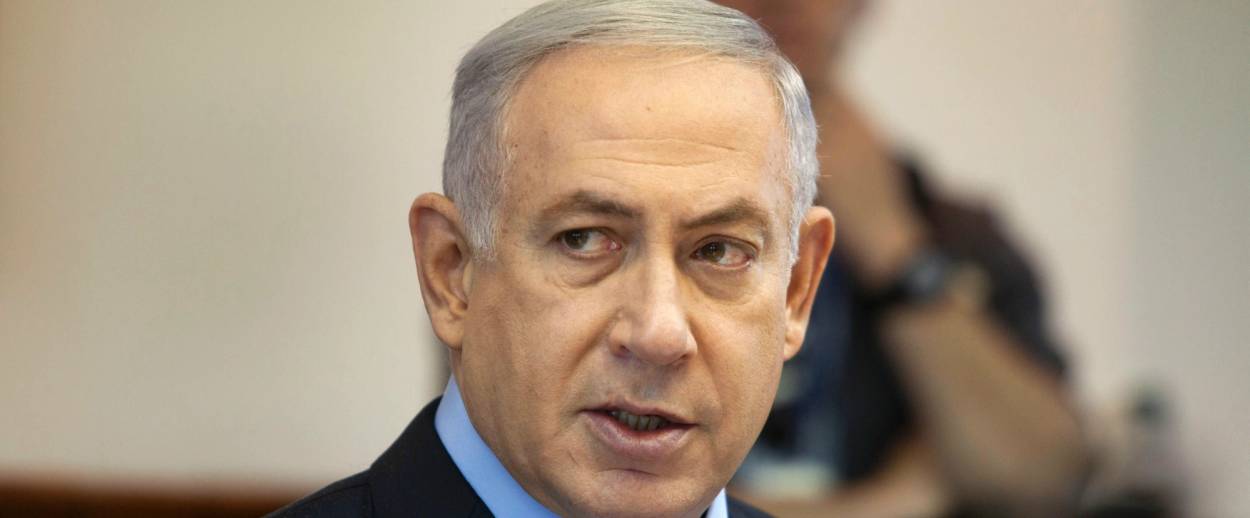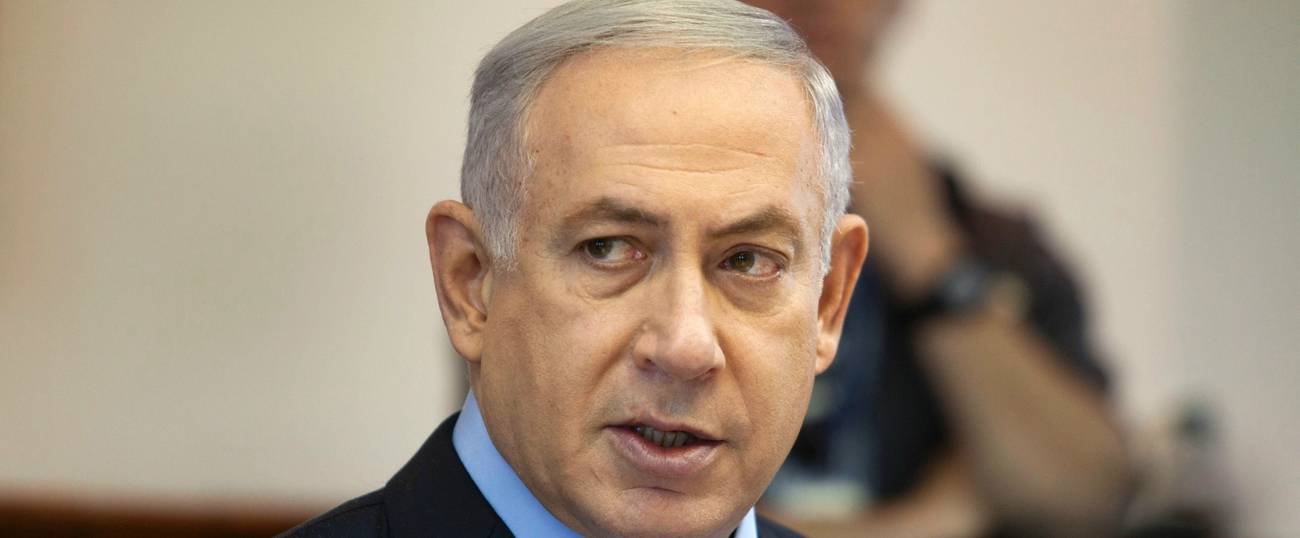Bipartisan Senate Report Raps State Department for Indirectly Funding Effort to Unseat Netanyahu in 2015
American and Israeli efforts to impact each other’s politics have a long, hidden history




In a bipartisan report issued Tuesday, the U.S. Senate’s Permanent Subcommittee on Investigations criticized the State Department for issuing $349,000 in grants to OneVoice, an Israeli-Palestinian peace-building orgdeanization, with insufficient oversight. The report, signed by Republican Senator Rob Portman and Democratic Senator Claire McCaskill, found that the funds were used by to build infrastructure that was subsequently turned into an anti-Netanyahu apparatus for Israel’s 2015 elections, in contravention of State Department practice.
“Despite OneVoice’s previous political activism in the 2013 Israeli election, the Department failed to take any steps to guard against the risk that OneVoice could engage in political activities using State-funded grassroots campaign infrastructure after the grant period,” the report stated.
OneVoice used the campaign infrastructure and resources built, in part, with State Department grants funds to support V15 [a left-wing electoral activist effort]. In service of V15, OneVoice deployed its social media platform, which more than doubled during the State Department grant period; used its database of voter contact information, including email addresses, which OVI expanded during the grant period; and enlisted its network of trained activists, many of whom were recruited or trained under the grant, to support and recruit for V15.
OneVoice, a well-respected Israeli-Palestinian group that works to cultivate coexistence and identifies with the Israeli left, fully informed the State Department of their intentions, but oddly “the State Department diplomat who received the plan told the Subcommittee that he never reviewed it,” the report recounted. Adding to the intrigue, congressional investigators found that “the State Department was unable to produce all documents responsive to the Subcommittee’s requests due to its failure to retain complete email records of Michael Ratney, who served as U.S. Consul General in Jerusalem during the award and oversight of the OneVoice grants.” Ratney subsequently explained that he would occasionally delete work emails with attachments—in violation of State Department directives to archive all correspondence—so as to remain under his inbox storage limit.
The report found no legal wrongdoing by the State Department, even as it rapped it for negligence, given that OneVoice had a history of electoral activism, was building electoral infrastructure, and had informed the State Department of its electoral plans. Whether this American funding of anti-Bibi advocacy was a deliberate design, the consequence of incompetence, or the product of benign neglect, will likely never be known with certainty.
Even were these activities to be intentional, they would be far from the first time America had meddled in Israeli politics—or vice versa. Contrary to the feigned outrage proffered by partisans on both sides of the Israel issue when this meddling goes against their interests, such efforts have a long history. Before the State Department funded Netanyahu’s electoral opposition, and before Netanyahu pressed his case against the Iran deal in Congress in coordination with its Republican members, American presidents and Israeli prime ministers were attempting to tip the political playing field in each other’s countries in their favor.
In the 70s, then-Israeli ambassador to the U.S. Yitzhak Rabin intervened on behalf of President Richard Nixon’s reelection effort (while vigorously denying doing so at the time). In the 90s, President Bill Clinton’s top personal political spin doctors parachuted into Israel to assist in the (successful) effort to oust a young Israeli prime minister named Benjamin Netanyahu. While Clinton maintained a veneer of official neutrality, he was regularly briefed by the consultants on their progress until Ehud Barak’s ultimate victory in 1999.
This latest episode is sure to rekindle discussion of these interventions in Israel, which just passed a controversial bill requiring NGOs like V15 and OneVoice to more vigorously disclose their funding from foreign governments, though it made no such requirements for declaring support from private donors, thus effectively exempting most of Israel’s right-wing NGOs.
Yair Rosenberg is a senior writer at Tablet. Subscribe to his newsletter, listen to his music, and follow him on Twitter and Facebook.